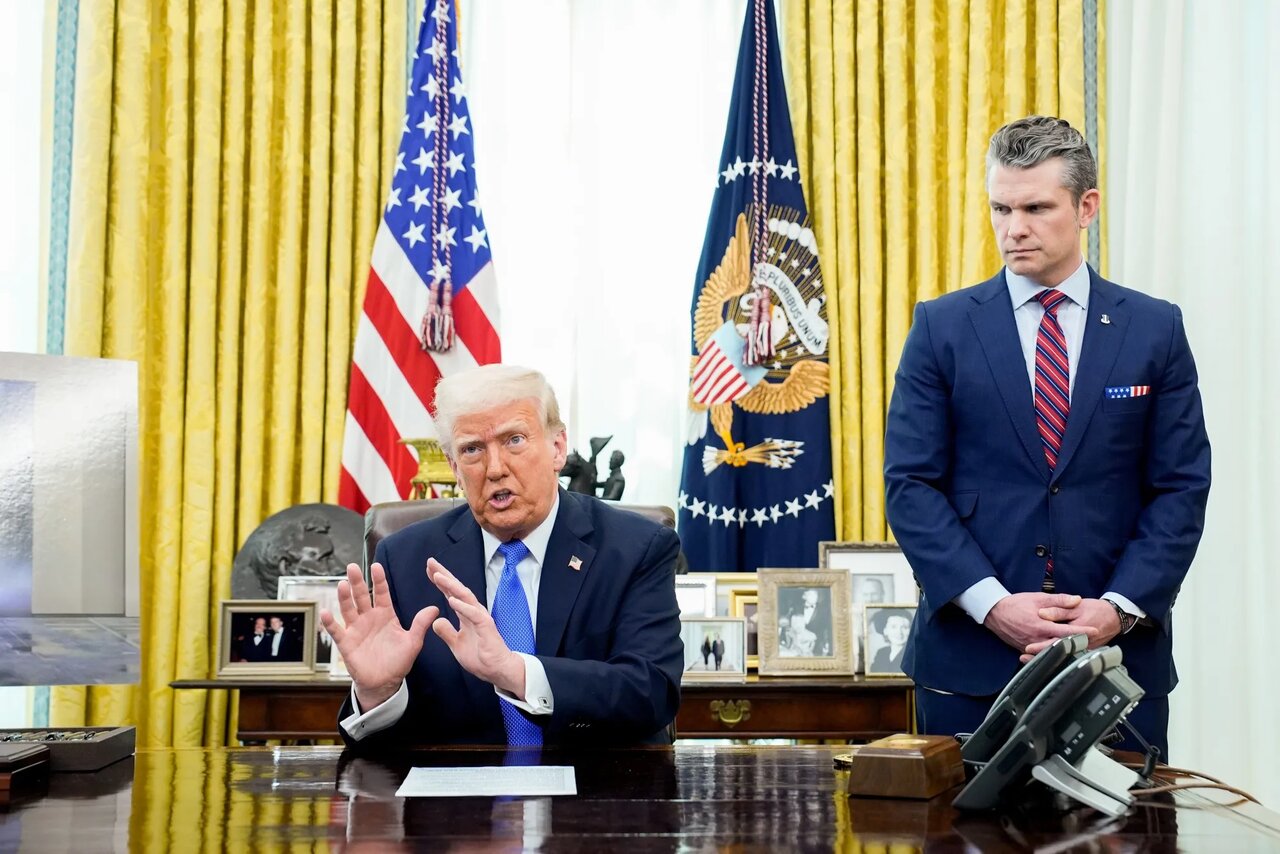Caribbean crisis: U.S. military actions fuel Latin American pushback

TEHRAN – The United States’ deadly attacks on vessels in Caribbean waters off Venezuela and Colombia, coupled with President Donald Trump’s escalating threats, have thrust the region into global attention. Since early September, nearly 30 people have been killed in strikes that the Trump administration claims are aimed at dismantling drug trafficking networks.
The latest attack, on Thursday, claimed two lives when a vessel in the region was struck. Trump said U.S. intelligence confirmed the ship was “loaded up with mostly Fentanyl and other illegal narcotics.” He added that two others who survived the attack would be returned to their countries of origin, Ecuador and Colombia. U.S. Defense Secretary Pete Hegseth further claimed the ship was linked to a Colombian leftist rebel group, calling such vessels “cartels” of “the Al Qaeda of the Western Hemisphere.”
Tensions between Bogotá and Washington have intensified. On Sunday, Colombia’s President Gustavo Petro accused the U.S. of committing “murder” after a military strike on a boat in Colombian territorial waters on September 16. In response, Trump labeled Petro an “illegal drug dealer” and threatened to cut U.S. funding to Colombia. Late on Monday Colombia said it had recalled its ambassador to the United States following Trump’s comments.
Last month, the U.S. revoked Petro’s visa after he joined a pro-Palestinian demonstration in New York and urged U.S. soldiers to disobey Trump’s orders, telling them, “don’t point your rifles against humanity.”
Colombia recalls its ambassador to the United States amid a diplomatic spat with the Trump administration Meanwhile, Trump has also targeted Venezuelan vessels, accusing the country of sending drugs to the U.S. and claiming authorization for CIA covert operations on Venezuelan soil. President Nicolas Maduro has warned that Trump is attempting to turn Venezuela “into an American colony.” He has also bolstered Venezuela’s defenses and mobilized millions of citizens to assert the country’s sovereignty in response to US military activity. The U.S. is simultaneously expanding its military presence in the Caribbean, deploying guided missile destroyers and F-35 jets, while intensifying surveillance and operations along the region’s coastlines.
Trump defends the vessel attacks as part of a campaign to stem the flow of drugs into the U.S., but his administration has provided little evidence regarding the identities of the vessels or their passengers. UN-appointed human rights experts have described the strikes as “extrajudicial executions.”
In addition to regional security concerns, U.S. tensions with Latin American leaders have grown over political alliances and positions on global conflicts. At the United Nations General Assembly in September, Petro delivered a fiery speech condemning Israel’s actions in Gaza, calling for an international coalition to “liberate Palestine.” Brazilian President Luiz Inácio Lula da Silva, who has similarly denounced the Gaza “genocide”, showed an unusual gesture of solidarity by kissing Petro on the head—a display of unity in a region often divided by ideology.

A historic and unprecedented moment took place at the United Nations when Brazilian president Luiz Inácio Lula da Silva, kissed the head of the Colombian President Gustavo Petro following his speech at the General Assembly in September
Brazilian journalist Guilherme Oblasser Paladino, political reporter for Brazil247, told the Tehran Times: “President Lula’s kiss on President Petro’s head reflects the harmony and closeness between the two leaders, especially on geopolitical issues. Petro is one of the Latin American leaders most committed to the Palestinian cause and social rights, and this strongly resonates with Lula’s own political trajectory. In a continent where unity is difficult due to ideological differences, Lula sees in Petro a major ideological ally.”
President Maduro has also voiced support for Palestine, further aligning Venezuela with regional leaders critical of U.S. foreign policy.
As the Caribbean becomes a focal point for escalating U.S. military operations and regional tensions, Latin American nations are asserting their sovereignty and challenging external intervention. Governments from Colombia to Venezuela are navigating a complex landscape of security threats, diplomatic pressure, and domestic expectations, signaling a growing determination to defend regional autonomy. The unfolding developments highlight a hemisphere in which local leadership and multilateral cooperation are increasingly shaping the response to global powers’ actions, with lasting implications for U.S.-Latin American relations.
Leave a Comment